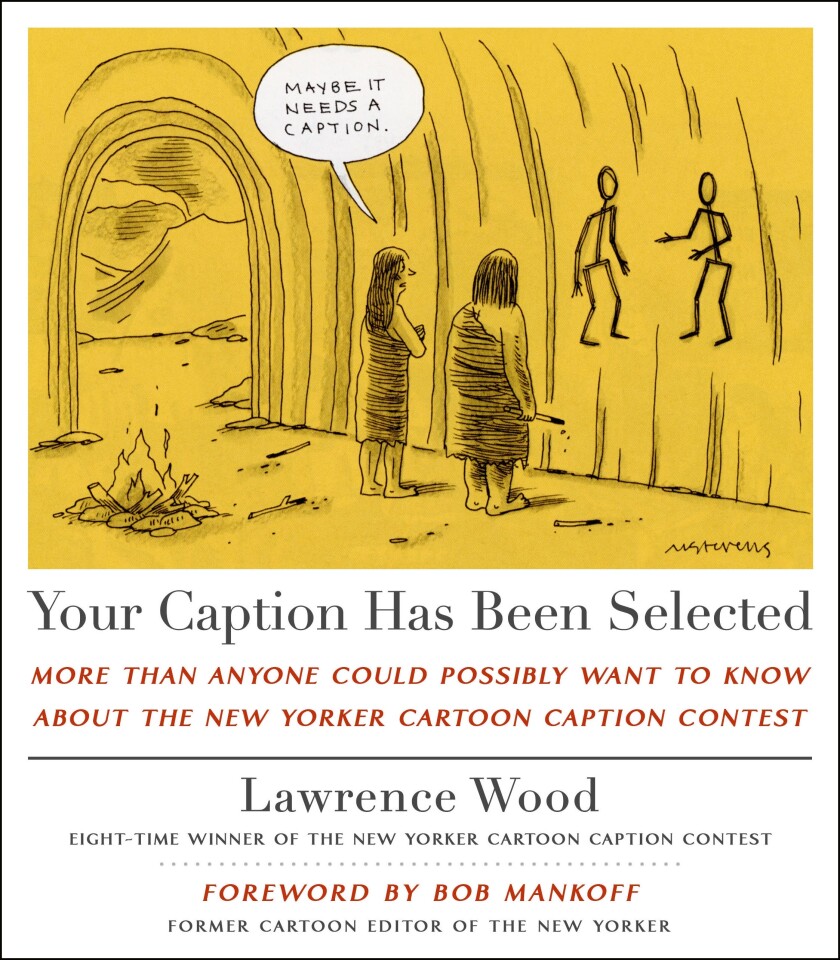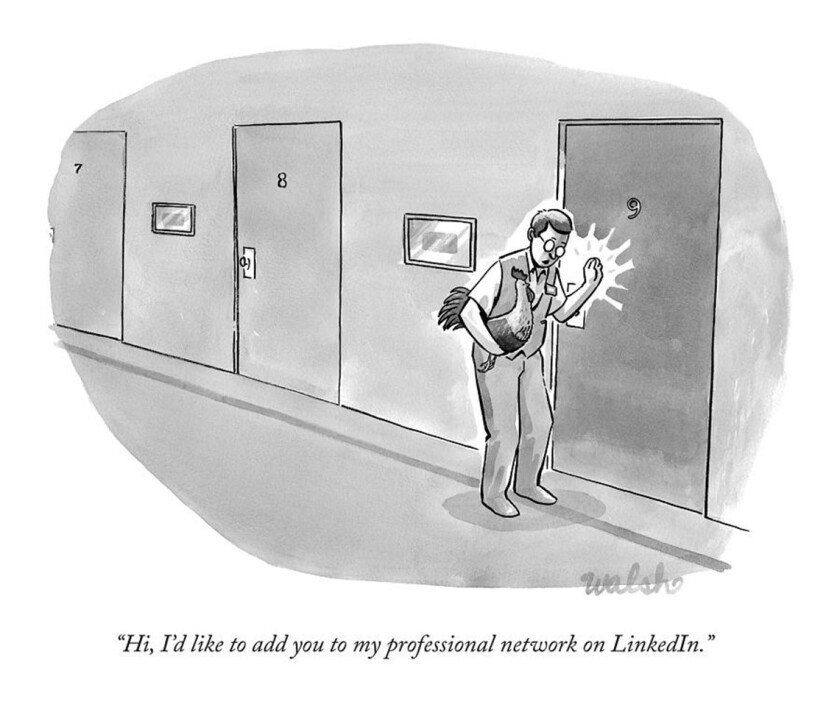Like some magazines that subscribers might guiltily read not just for the articles, many readers of The New Yorker head straight for the cartoons. Especially the page in the back of each issue featuring the Cartoon Caption Contest.
Each contest starts with a single-panel cartoon without a caption. Thousands of readers suggest captions one week. The next three become finalists, with their name and hometowns appearing in print. And then one wins.
The contest’s most frequently appearing credit, both as a finalist and as a winner, is “Lawrence Wood, Chicago, Ill.,” written in italics under the image and the lauded captions. Wood has won the contest eight times, and has reached the finals seven more. His success inspired the new book Your Caption Has Been Selected: More Than Anyone Could Possibly Want to Know About The New Yorker Cartoon Caption Contest, publishing Tuesday from St. Martin’s Press.
Wood, 61, is a public interest lawyer. He works at Legal Action Chicago, a partner organization of Legal Aid Chicago. His organization handles class-action litigation, lobbying, and other matters that Legal Aid Chicago can’t take on because of federal funding restrictions. He’s practiced public interest law for his entire career. He has also taught a clinical class on housing and poverty law at the University of Chicago Law School.
And every week, religiously, he scrutinizes The New Yorker’s latest wordless drawing to come up with something funny. He has entered hundreds of times since the contest went weekly in 2005, despite the lack of a prize beyond the glory of his name in print (or the seemingly far-fetched reward of a book contract for the all-time champion). “It’s what I do every Monday morning, and I do it for the love of the game,” he says.
Among the thousands of entries every week, many make minute variations on the same joke. The odds of winning are minuscule, not that that makes it feel better when your brilliant caption doesn’t make the cut. “I still for a little while — just a minute every week — I get a little annoyed when I don’t make it to the finalist round,” Wood says.
Bob Mankoff, the now-retired cartoon editor of The New Yorker, says Wood’s thoughtful approach sets him apart. Mankoff has always had a pet interest in psychology, so he originally got in touch with Wood to pick his brain about the secrets to his caption preeminence.
“You could see how articulate he was, how diligent he was in this,” Mankoff says. “We’ve had many, many emails about the captioning contest — its failings, what it was good at, crowdsourcing, why this one won rather than that one won.”
Mankoff urged Wood to share his process: “You were born to write this book, and you should write it,” he told him.
Your Caption Has Been Selected narrates the history of the contest. Many of the images used for the contest were regular rejected cartoon submissions to the magazine, stripped of their original captions and repurposed. Wood analyzes original captions, various submitted captions both successful and unsuccessful, and occasionally kvetches about winners. He also indulges in displaying his contest winners. For example, a woman walking past a panhandling dolphin says to her companion: “If he’s so damn intelligent, let him get a job.”
Wood gives advice about how to frame the task, such as identifying the speaker and their facial expression, and a few tips on sculpting the optimal caption. “You’ve got to end on the punch line,” he says. “You have to eliminate every unnecessary word. You’ve got to avoid, at all costs, exclamation points, which I just hate. I am shocked at the number of people who come up with a good joke but don’t know how to tell it.”
Of course, the book will not turn everyone into Larry Wood. Professionally, he spends his workdays wordsmithing, streamlining arguments the same way a good caption is boiled down to its humorous essence. Many successful caption contestants have verbal jobs, including, as Wood mentions in the book, Roger Ebert, another Chicagoan who made it a personal crusade to win the contest, which he finally did in 2011.
Wood also laid the groundwork for his champion status through a lifelong interest in comedy. His first record purchase was a comedy album. “My friends were buying Aerosmith’s Toys in the Attic and Boston’s first album,” he says, “but I bought a Bill Cosby album, and I would listen to it over and over.”
So in the end, is Wood hoping readers will plot their route to caption glory with this book?
“I just want them to buy it,” he says.
If you go: Bookends & Beginnings in Evanston (1620 N. Orrington Ave.) will host a conversation between Larry Wood and The New Yorker’s Bob Mankoff on June 7 at 5 p.m. The $33 registration fee includes a book.
Graham Meyer is a Chicago-based arts journalist.








